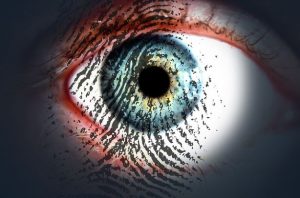Thoughts from the readings of January 14th
Knox, J. (2019). What Does the ‘Post digital ‘Mean for Education? Three Critical Perspectives on the Digital, with Implications for Educational Research and Practice. Post digital Science and Education.
https://doi.org/10.1007/s42438-019-00045-y
“The post digital might be usefully developed as an alternative view of human-technology relationships, and one that challenges common sense ideas about the sequential progress of technology, which tend to limit responses to either an embracing of futuristic technological enhancement, or the desire for a sentimental return to a more ‘natural’ existence.”
I wonder what would happen if we lost access to much of the technologies we have today?
Would we fall apart both professionally and personally?
Have we created an unnecessary reliance on the technologies used today?
Is technology considered essential to our existence?
How does technology effect our educational experience?
The idea of using technology, (regardless of the capacity) should make things easier to do, or enhance the quality of our education. Technology should be used as an “add- on” enhancing what we are already doing, not replacing something already. I often wonder if technology is being used for the sake of, rather than used in a meaningful way to enhance the learning experience and promote a greater level of understanding?
“propelling humanity towards social equality, or as a dehumanizing force, set to rob individuals and communities of authentic life experience?”
While the idea that digital technology should bring people together, and narrow the gap in terms of access to education, it appears in many ways to create a greater divide and highlight the inequalities that still exist within education.
Caines, A., & Glass, E. (2019, Fall). Education before Regulation: Empowering Students to Question Their Data Privacy. EDUCAUSE Review, 54 (4). Retrieved from https://er.educause.edu/articles/2019/10/education-before-regulation-empowering-students-to-question-their-data-privacy

Photo courtesy of Pixabay.com
“If students want to participate in standard educational activities, they often have little opportunity for real choice or consent around what data is collected. Additionally, once the data is collected, students have little visibility into how that data will be leveraged, monetized, or exposed later on.”
I think students often don’t think about how their data is collected, and most parents are likely unaware as well. There are consents required for students to participate, however it is questionable how much of what parents are signing off on, they truly understand, recognizing that their participation is voluntary. Schools have a responsibility to educate students around technology, especially if they are going to use it. Part of that education needs to be around awareness and the protection of privacy, while also teaching students about the value of data collection, I think we should be able to have both. In addition to learning about appropriate usage, should also include learning about online etiquette, so that all participants understand their moral obligation to be both ethical and respectful online.
“We believe that the classroom might be leveraged as a powerful site to raise student awareness about the complex struggles occurring with data privacy.”
I think we have an obligation to teach students about safety and privacy of information pertaining to the use of technology within the educational setting. I do worry that we might scare students about the issues of privacy if not careful. The article suggests an approach which includes a statement within your course syllabus that invites students to consider their data privacy and to further discuss concerns with their instructors or other campus members. While I think this is a good start, we do want to caution students, and not scare them. Engaging in conversations around these issues is a great start and hopefully will lead to greater problem solving around data privacy.
Some questions to ponder further:
How are social networks used for educational purposes being responsible for the collection and safeguarding of information so that they aren’t infringing on FOIIPA?
How do educators know which social networks are safe to use? I tend to follow the lead of our I.T. department, but ultimately how do we know which are truly secure?
What do these social platforms mean for educators today? (Example: who is seeing it? What standards are being set? Who is monitoring these systems? What kinds of pressure is this putting on educators?
How much pressure is put on teachers to use social networks for home/ school communication or in general?
How much pressure are schools putting on families to access these platforms? Especially when looking at those marginalized groups? How are they accessing information?
Who is responsible for closing the gap for marginalized community groups?
How do we create a mutually agreed upon online space where everyone can participate?
Leave a Reply